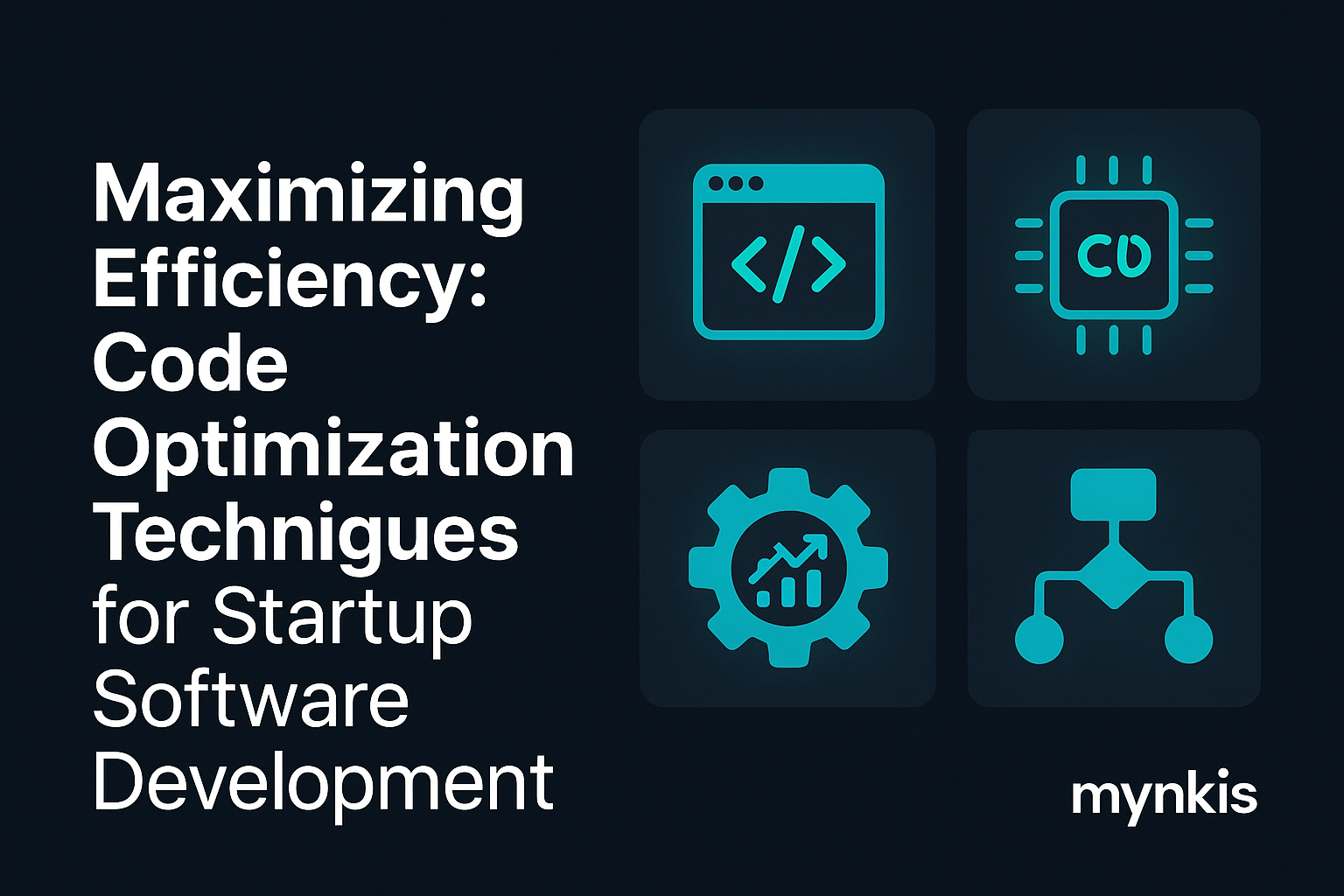Schedule a Demo
Code optimization is the process of modifying a software system to improve its performance without altering its functionality. For founders who are looking to scale their software solutions rapidly, optimizing your code early can mean the difference between a manageable system and an unwieldy one as your user base grows. In my experience working with various startups, I've seen first-hand how early optimization can lay a strong foundation for scaling.
Optimization isn't just about speed. It's about creating software that can handle increased loads efficiently, reduce operational costs, and provide a better experience for the end-user. For instance, Google's research shows that even a 100ms delay in loading time can result in a significant drop in user engagement. Your startup's success can hinge on how well your code performs, especially in the age of rapid market scaling.
Before diving into code optimization, it's crucial to profile your existing software to identify bottlenecks. Using tools like New Relic or JMeter can help pinpoint areas where your application is slow or using excessive resources. Based on available research, this step can save you countless hours of unnecessary work by focusing your efforts where they'll have the most impact.
Complex code can often lead to performance issues. I've encountered many cases where simplifying code structures has led to a significant decrease in execution time. Techniques like removing unnecessary code, refactoring complex methods into smaller, more manageable pieces, and adopting design patterns that promote scalability are essential. These practices, advocated by leaders at companies like ThoughtWorks, underline the importance of code maintainability in performance.
Selecting the right algorithms can drastically affect your software's performance. For instance, swapping out a linear search with a binary search on a sorted list can reduce the time complexity from O(n) to O(log n). In my work, I've advised numerous teams on choosing and implementing efficient algorithms, such as optimizing database queries with index techniques, based on the best practices from authoritative sources like GeeksforGeeks.
Caching is another powerful tool for improving software performance. By storing frequently accessed data in memory, you can reduce the need to repeatedly fetch information from slower storage sources. Depending on your application's architecture, implementing a strategy such as Redis caching can dramatically decrease response times. Organizations like Redis Labs offer insights into advanced caching strategies that enhance software responsiveness.
Founders should pay special attention to how their software interacts with databases. Optimizing database operations can be as straightforward as properly indexing tables, or as complex as tuning query performance. An example from my experience is guiding a client to optimize their PostgreSQL queries, which cut their data retrieval time in half. References from databases like PostgreSQL can provide specific guidance on making these improvements.
For software that's distributed or cloud-based, reducing network requests can significantly speed up operations. Techniques such as bundling requests, using GraphQL to efficiently query your data, or even reconsidering where data resides (perhaps closer to the user) can make a huge difference. I've seen companies streamline their data flow, which not only improves performance but also reduces bandwidth costs.
On the front end, particularly with web applications, ensuring that your code is compiled and minified can have a notable impact on load times. Tools like Webpack for JavaScript or UglifyJS can drastically reduce file sizes, thereby speeding up your application's delivery to users. From the feedback I've gathered, clients often report improved website performance after implementing these optimizations.
Implementing asynchronous processing can enable your software to handle multiple tasks more efficiently. Languages like Node.js shine in this area, allowing for non-blocking I/O operations that can keep your software responsive under high loads. I've guided several startups in transitioning their code bases to take advantage of asynchronous paradigms, which always boosts system throughput.
Proper memory management can prevent performance degradation as your software scales. Techniques such as reducing memory leaks, understanding garbage collection in languages like Java, or optimizing data structures for lower memory use can significantly enhance your software's capacity to grow. Over the years, I've collaborated with memory experts to help teams monitor and refine their memory management strategies, a critical step as they expand.
Optimization isn't a one-and-done process; it requires ongoing testing and refinement. Implementing robust automated testing suites, combined with continuous integration/continuous deployment (CI/CD) practices, ensures that as your software evolves, its performance stays top-notch. My guidance to clients always includes a solid regimen of performance testing, as every iteration can either introduce new efficiencies or regressions.
While optimizing your code is crucial, balancing this with rapid development is vital for founders building their MVP websites. Over-optimization early on can slow down your ability to iterate and test with users. A strategy I recommend is to focus on critical performance bottlenecks identified early on, allowing your MVP to launch quickly while not sacrificing long-term scalability. This approach, supported by organizations like Agile Alliance, ensures you can pivot as needed based on user feedback.
Staying updated on the latest trends in code optimization can give your software development efforts an edge. Emerging technologies like machine learning for predictive code optimization, serverless architecture to offload routine tasks, and performance-focused frameworks are reshaping what's possible. Keeping abreast of publications from research institutions such as MIT Press can provide insights into the cutting-edge techniques that might soon impact the field.
As founders navigate the complexities of growing their companies, the role of optimized code in ensuring seamless and scalable operations cannot be overstated. By embracing the principles of code optimization discussed here, you can position your MVP websites for success, ready to handle rapid iteration and the long-term tech infrastructure needed to grow and scale your business. Remember, every line of code you write or optimize today paves the way for your software's performance tomorrow.
